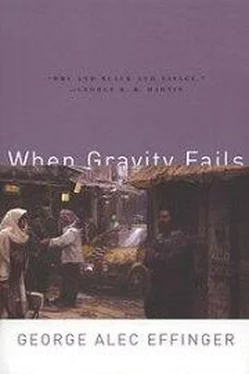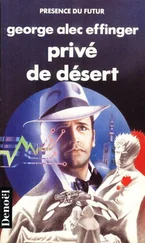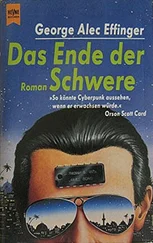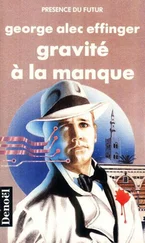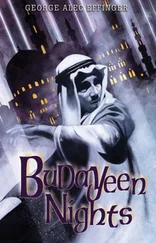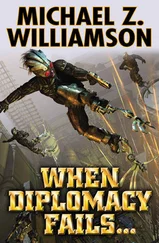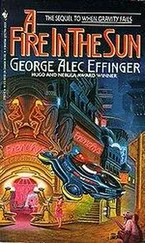“A temporary alliance of the far right wing and the far left,” I said.
Okking smiled wanly. “It’s happened before.”
“And you were working for the Germans.”
“That’s right.”
“Through Seipolt?”
Okking nodded. He wasn’t enjoying any bit of this. “Bogatyrev wanted you to find the prince. When you did, the duke’s man, whoever he is, would kill him.”
I was astonished. “Bogatyrev was setting up the murder of his own nephew? His brother’s son?”
“To preserve the monarchy at home, yes. They’d decided it was unfortunate but necessary. I told you it was dirty. When you wander into the highest level of international affairs, it’s almost always dirty.”
“Why did Bogatyrev need me to find his nephew?”
Okking shrugged. “In the past three years of the prince’s exile, he’d managed to disguise himself and hide pretty well. Sooner or later, he must have realized his life was in danger.”
“Bogatyrev’s ‘son’ wasn’t killed in a traffic accident, then. You lied to me; he was still alive when you told me the matter was closed. But you say the Byelorussians did kill him, after all.”
“He was that sex-change friend of yours. Nikki. Nikki was really the Crown Prince Nikolai Konstantin.”
“Nikki?” I said in a flat voice. I was unnerved by the accumulated weight of the truths I’d demanded to hear, and by the weight of regret. I remembered Nikki’s terrified voice during that short, interrupted telephone call. Could I have saved her? Why hadn’t she trusted me more? Why didn’t she tell me the truth, tell me what she must have suspected? “Then Devi and the other two Sisters were killed—”
“Just because they were too close to her. It didn’t make any difference whether or not they really knew anything dangerous. The German killer — Khan, now — and the Russian guy aren’t taking any chances. That’s why you’re on the list, too. That’s why … this.” The lieutenant opened a drawer and took something out, flipped it across his desk toward me.
It was another note on computer paper, just like mine. Only it was addressed to Okking.
“I’m not leaving the police station until this is all over,” he said. “I’m staying right here with a hundred fifty friendly cops watching my back.”
“I hope none of them is Bogatyrev’s knifeman,” I said. Okking winced. The idea had already occurred to him, too.
I wished I knew how long the hit lists were, how many names followed mine and Okking’s. It was a shock when I realized that Yasmin could very well be on them. She knew at least as much as Selima had; more, because I’d told her what I knew and what I guessed. And Chiriga, was her name there? What about Jacques, Saied, and Mahmoud? And how many other people that I knew? Thinking about Nikki, who’d gone from prince to princess to dead, thinking about what I had ahead of me, I felt crushed; I looked at Okking and realized that he was crushed, too. Far worse than I. His career in the city was over, now that he had admitted to being a foreign agent.
“I don’t have any more to tell you,” he said.
“If you learn something, or if I need to get in touch with you … ”
“I’ll be here,” he said in a dead voice. “ Inshallah .” I got up and left his office. It was like escaping from prison.
Outside the station house, I unclipped my phone and spoke into it as I walked. I called the hospital and asked for Dr. Yeniknani.
“Hello, Mr. Audran,” came his deep voice.
“I wanted to find out about the old woman, Laila.”
“It’s too soon to tell, to be quite frank. She may recover with the passage of time, but it doesn’t seem likely. She is old and frail. I have her sedated and she’s under constant observation. I’m afraid she might fall into an irreversible coma. Even if that doesn’t happen, there’s an extremely high probability that she will never regain her intelligent faculties. She will never be able to care for herself or perform the simplest tasks.”
I took a deep breath and let it out. I felt that I was to blame.
“All is as Allah ordains,” I said numbly.
“Praise be to Allah.”
“I will ask Friedlander Bey to take upon himself the cost of her medical expenses. What happened to her was a result of my investigations.”
“I understand,” said Dr. Yeniknani. “There is no need to speak to your sponsor. The woman is being treated as a charity case.”
“I speak for Friedlander Bey as well as myself: we cannot adequately express our thanks.”
“It is a sacred duty,” he said simply. “Our technicians have determined what was recorded on that module. Do you wish to know?”
“Yes, of course,” I said.
“There are three bands. The first, as you know, is a recording of the responses of a large, powerful, but starved, maltreated, and ruthlessly provoked cat, apparently a Bengal tiger. The second band is the brain impression of a human infant. The last band is the most repellent of all. It is the captured, fading consciousness of a very recently murdered woman.”
“I knew I was looking for a monster, but I’ve never heard anything so depraved in all my life.” I was thoroughly disgusted. This lunatic had no moral restraints on him at all.
“A piece of advice, Mr. Audran. Never use such a cheaply manufactured module. They are crudely recorded, with a great deal of harmful ‘noise.’ They lack the safeguards built into the industrially made modules. Too frequent use of underground moddies results in damage to your central nervous system, and through it, your whole body.”
“I wonder where it will end?”
“Simple enough to predict: The killer will get a duplicate module made.”
“Unless Okking or I or someone else gets to him first.”
“Take heed, Mr. Audran. He is, as you say, a monster.”
I thanked Dr. Yeniknani and returned the phone to my belt. I couldn’t stop thinking about how wretched and miserable a life Laila had remaining to her. I thought also about my nameless foe, who used a commission from the Byelorussian royalists as a license to indulge his repressed desire to commit atrocities. The news from the hospital changed my half-formed plans entirely. Now I knew precisely what I had to do, and I had some good ideas about how to get it done.
Going up the Street, I met Fuad the Terminally Witless. “ Marhaba ,” he said. He squinted up at me, one hand shading his weak eyes.
“How’s it goin’, Fuad?” I said. I wasn’t in the mood to stand around and talk with him. I had some preparations to make.
“Hassan wants to see you. Something to do with Friedlander Bey. Said you’d know what he meant.”
“Thanks, Fuad.”
“Do you? Know what he means?” He blinked at me, hungry for gossip.
I sighed. “Yeah, right, I know. Got to run.” I tried to tear myself away from him.
“Hassan said it was really important. What’s it all about, Marîd? You can tell me. I can keep a secret.”
I didn’t answer; I doubted that Fuad could keep anything , least of all a secret. I just clapped him on the shoulder like a pal, and gave him my back. I stopped in Hassan’s shop before I went home. The American kid was still sitting on his stool in the empty room. He gave me a chilling come-hither smile. I was sure now: this boy liked me. I didn’t say a word, but ducked into the back and found Hassan. He was doing what he was always doing, checking invoices and packing lists against his cartons and crates. He saw me and smiled. Apparently he and I were on good terms now; it was so hard keeping track of Hassan’s moods that I had stopped trying. He set down his clipboard, put one hand on my shoulder, and kissed my cheek in the Arabic manner. “Welcome, O my darling nephew!”
Читать дальше
